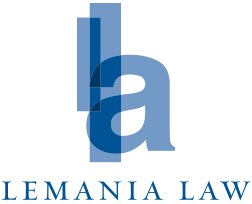Best Art & Cultural Property Law Lawyers in Switzerland
Share your needs with us, get contacted by law firms.
Free. Takes 2 min.
Or refine your search by selecting a city:
List of the best lawyers in Switzerland
About Art & Cultural Property Law in Switzerland
Art & Cultural Property Law in Switzerland is a specialized area of law that addresses the legal aspects of the creation, ownership, use, and protection of art and cultural property. Switzerland, being a global hub for art markets and auctions, has established comprehensive laws to manage the legal complexities associated with art and cultural objects. These laws cover a wide array of issues, including art transactions, provenance disputes, cultural heritage protection, and the restitution of looted or stolen artifacts. The legal framework ensures the conservation of cultural property while facilitating lawful trade and exchange of art assets.
Why You May Need a Lawyer
There are numerous situations where individuals or institutions might require legal assistance in the field of Art & Cultural Property Law in Switzerland. Common scenarios include:
- Art Transactions: Navigating the buying or selling process of artworks can be complex, often requiring legal guidance to ensure compliance with applicable laws and contractual obligations.
- Inheritance of Art Collections: Legal advice may be necessary to manage the inheritance of art collections, including valuation, division among heirs, and taxation issues.
- Provenance and Restitution Claims: Legal expertise is often required to resolve disputes related to the provenance of artworks or to address claims for restitution of looted or stolen cultural property.
- Protection of Cultural Property: Institutions or individuals engaging in the conservation and management of cultural property may need legal advice to comply with national and international regulations.
- Customs and Export Restrictions: Assistance may be required to navigate customs regulations and export restrictions that apply to moving cultural property across borders.
Local Laws Overview
Switzerland's Art & Cultural Property Law is comprehensive and incorporates national laws as well as international agreements. Key aspects include:
- The Cultural Property Transfer Act (CPTA): This act regulates the transfer of cultural property to ensure it is done legally and ethically. It addresses issues such as the export and import of cultural goods and stolen artifacts.
- International Agreements: Switzerland is a signatory to several international treaties, including the UNESCO Convention on the Means of Prohibiting and Preventing the Illicit Import, Export, and Transfer of Ownership of Cultural Property. These agreements reinforce legal standards and cooperation across borders.
- Property and Copyright Laws: These laws govern the ownership rights of creators and owners of artworks, ensuring their protection from unauthorized use or infringement.
Frequently Asked Questions
1. What is cultural property?
Cultural property includes tangible items of artistic, historical, or archaeological significance, such as artworks, artifacts, manuscripts, and monuments.
2. How can I verify the provenance of an artwork?
Provenance verification involves researching the history of an artwork to confirm its authenticity and legal ownership, often requiring the expertise of provenance researchers or legal experts.
3. What constitutes a looted or stolen artifact?
An artifact is considered looted or stolen if it has been illegally excavated or removed without the consent of its rightful owner or the governing law.
4. What are the legal obligations for exporting art from Switzerland?
Exporting art from Switzerland requires compliance with the CPTA, which stipulates that cultural goods must have proper documentation and authorization to leave the country legally.
5. Can art be considered a part of cultural heritage?
Yes, art can be part of cultural heritage if it holds cultural, historical, or social significance within a community or society.
6. How does the Swiss legal system handle art disputes?
Art disputes in Switzerland can be resolved through negotiation, mediation, arbitration, or litigation within the Swiss legal system, depending on the nature of the dispute.
7. Are there specific licenses required for art dealers in Switzerland?
Art dealers in Switzerland might require specific licenses or permits, particularly when dealing with cultural property that falls under national or international regulations.
8. What should I do if I discover a stolen or illicitly traded artwork?
If you discover a stolen or illicitly traded artwork, it is crucial to report it to the Swiss authorities or legal experts specializing in cultural property law to address the issue appropriately.
9. What international agreements is Switzerland part of regarding cultural property?
Switzerland is part of several international agreements, including the 1970 UNESCO Convention and the 1995 UNIDROIT Convention, which aim to protect and preserve cultural property.
10. How does Switzerland protect its cultural heritage?
Switzerland protects its cultural heritage through various measures, including legislation, preservation programs, and international cooperation aimed at safeguarding and restoring cultural treasures.
Additional Resources
For individuals seeking more information or assistance on Art & Cultural Property Law in Switzerland, the following resources can be helpful:
- Swiss Federal Office of Culture: Offers information and guidance on cultural property protection and policy.
- UNESCO National Commission of Switzerland: Provides insights into international treaties and conventions related to cultural heritage.
- Professional Associations: Organizations like the Art Law Foundation in Switzerland provide resources and networking opportunities for those interested in art and cultural property law.
- Legal Consulting Firms: Numerous law firms in Switzerland specialize in art and cultural property law, offering expert legal advice and representation.
Next Steps
If you require legal assistance in Art & Cultural Property Law in Switzerland, consider taking the following steps:
- Research and Identify: Identify lawyers or law firms with expertise in Art & Cultural Property Law. Consider their experience, reputation, and previous handling of similar cases.
- Consultation: Schedule a consultation to discuss your specific legal needs and understand the legal requirements and processes involved.
- Documentation: Prepare relevant documents and evidence, such as provenance records, contracts, and correspondence, to support your legal case.
- Legal Strategy: Work collaboratively with your legal advisor to develop a legal strategy that protects your interests and complies with both national and international law.
By taking these steps, you can ensure that your legal and cultural interests are effectively managed and protected in Switzerland's art and cultural property landscape.
Lawzana helps you find the best lawyers and law firms in Switzerland through a curated and pre-screened list of qualified legal professionals. Our platform offers rankings and detailed profiles of attorneys and law firms, allowing you to compare based on practice areas, including Art & Cultural Property Law, experience, and client feedback.
Each profile includes a description of the firm's areas of practice, client reviews, team members and partners, year of establishment, spoken languages, office locations, contact information, social media presence, and any published articles or resources. Most firms on our platform speak English and are experienced in both local and international legal matters.
Get a quote from top-rated law firms in Switzerland — quickly, securely, and without unnecessary hassle.
Disclaimer:
The information provided on this page is for general informational purposes only and does not constitute legal advice. While we strive to ensure the accuracy and relevance of the content, legal information may change over time, and interpretations of the law can vary. You should always consult with a qualified legal professional for advice specific to your situation.
We disclaim all liability for actions taken or not taken based on the content of this page. If you believe any information is incorrect or outdated, please contact us, and we will review and update it where appropriate.
Browse art & cultural property law law firms by city in Switzerland
Refine your search by selecting a city.















